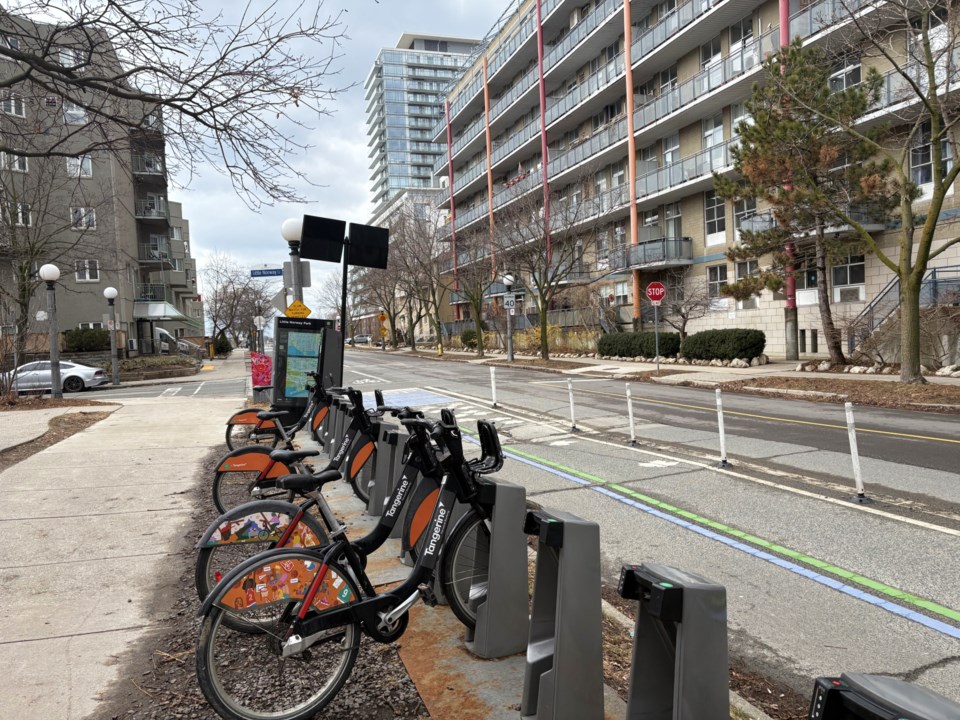Mayor Olivia Chow said she and Premier Doug Ford’s government are working toward a “win-win” solution that could preserve some of the bike lanes targeted by the province while keeping space for cars.
“We're moving forward,” Chow said at an unrelated press conference on Tuesday alongside Ontario’s Transportation Minister Prabmeet Sarkaria. “There are lots of discussions regarding a solution that could accommodate an extra car lane but protect the safe space for cycling.”
“There are places that can happen,” she added.
Bill 212, the Reducing Gridlock, Saving You Time Act, directed Sarkaria to axe some or all of Toronto’s Bloor Street, Yonge Street and University Avenue bike lanes.
In a statement on Tuesday night, Sarkaria's office said the province is willing to collaborate with the city on squeezing both car and bike lanes onto streets — but Toronto must foot the bill.
“Where both a reinstated car lane and a bike lane can exist, we are open to collaboration with the city of Toronto, provided they fund their portion of their identified infrastructure needs,” the minister's office told TorontoToday.
Chow’s comments come as the clock ticks toward a potential bike lane removal date.
In December, internal government emails obtained by TorontoToday showed the province was targeting March 20 as the earliest possible day for removals. In January, the province contracted engineering firm Stantec for design work to help plan the reconstruction.
With that date having come and gone, it’s still unclear when the removals will start and the province hasn't said which lanes are coming out. In a March comment to CBC News, Stantec said it was only working on technical drawings for 1.5 kilometres of lanes.
Cycle Toronto heads back to court next week
Past attempts to delay the removals were unsuccessful.
In December, Cycle Toronto, a Toronto-based cycling advocacy group, launched a Charter challenge against the bill, arguing it violates cyclists’ right to life, liberty and security of the person.
The court date is set for next Wednesday, April 16.
The group also sought an injunction to prevent the government from removing any lanes until a judge ruled on the Charter issues. An Ontario Superior Court justice refused to grant one.
Cycle Toronto executive director Michael Longfield said he was “pleased” to hear Chow remained committed to trying to preserve the lanes but stressed his focus is on the upcoming court hearing.
“Hopefully, through that process, any removals become a non-starter,” he said.
In March, city council forged ahead with plans to expand Toronto’s cycling network without removing any car lanes, as that would run afoul of the provincial legislation.
Most new bike lanes are planned for secondary side roads in residential areas — consistent with the terms of Bill 212.
However, to make room for new bike lanes without affecting vehicle traffic, city council plans to remove 20 on-street parking spaces along Hallam Street in the Wallace Emerson neighbourhood.
Editor's note: This story has been updated to include a statement from Transportation Minister Prabmeet Sarkaria's office that was received after publication time.




